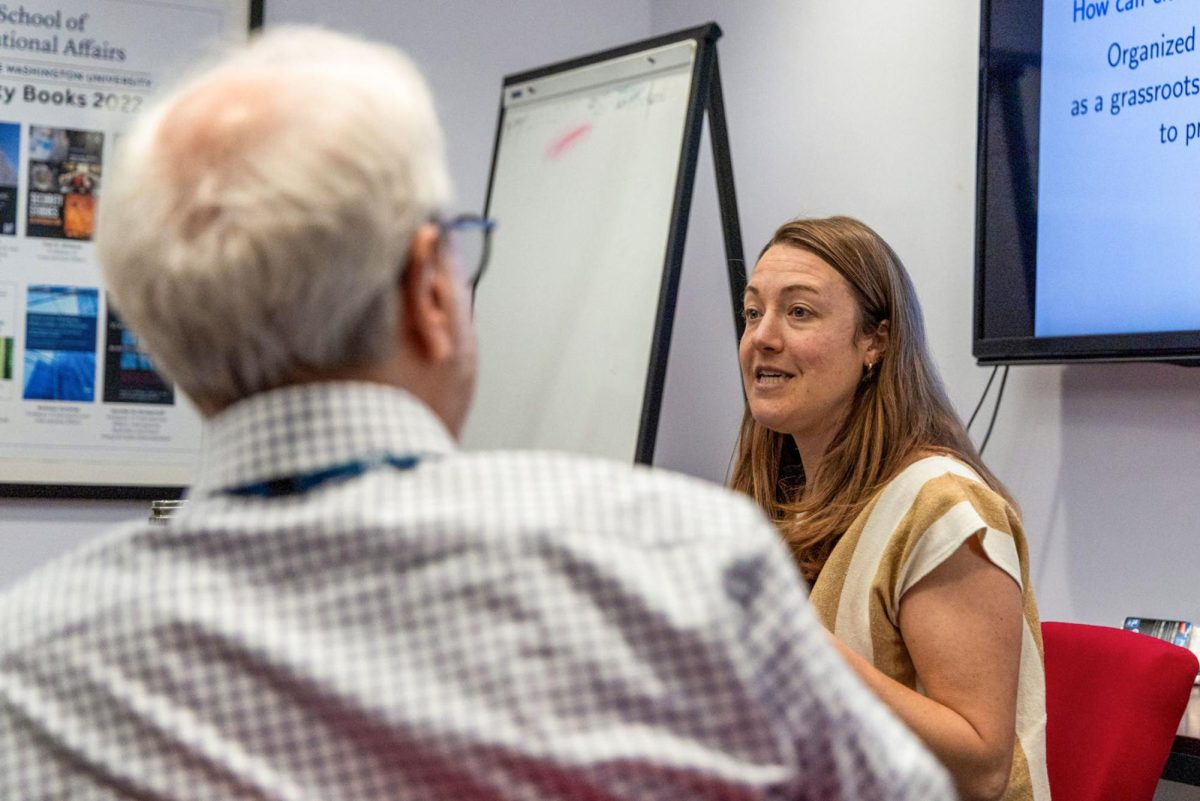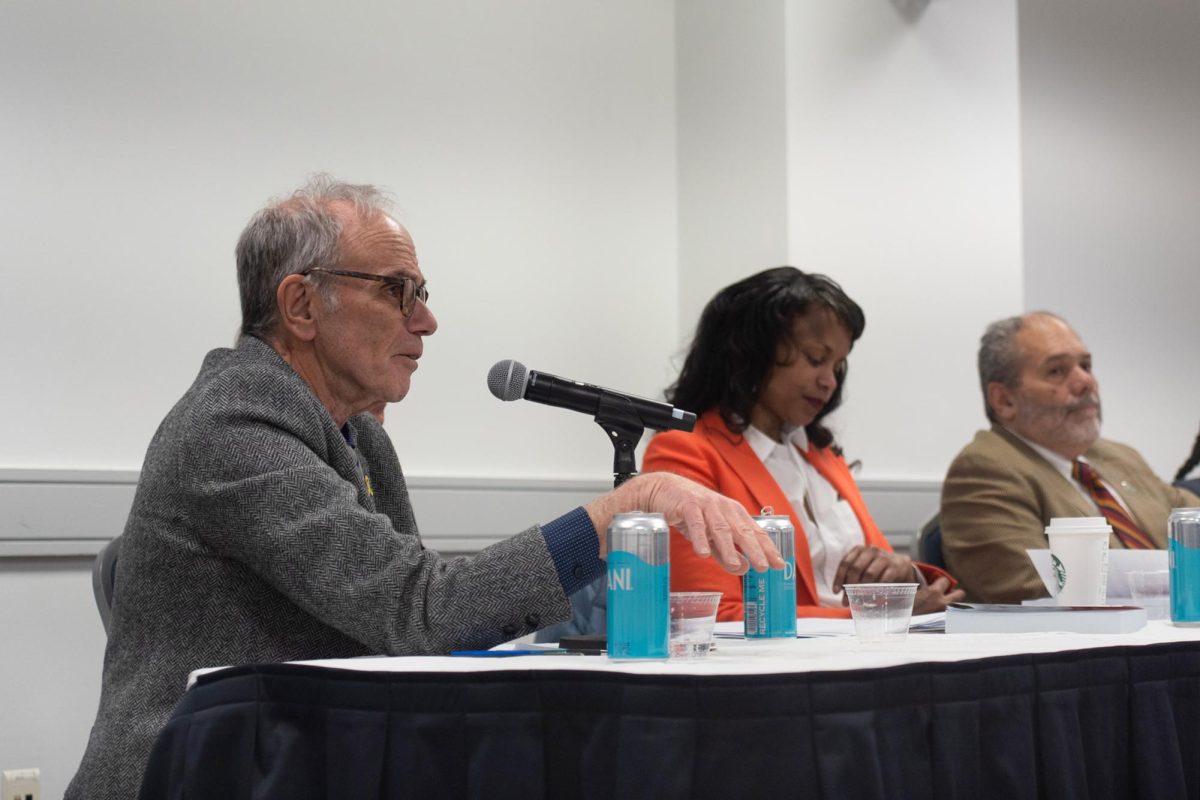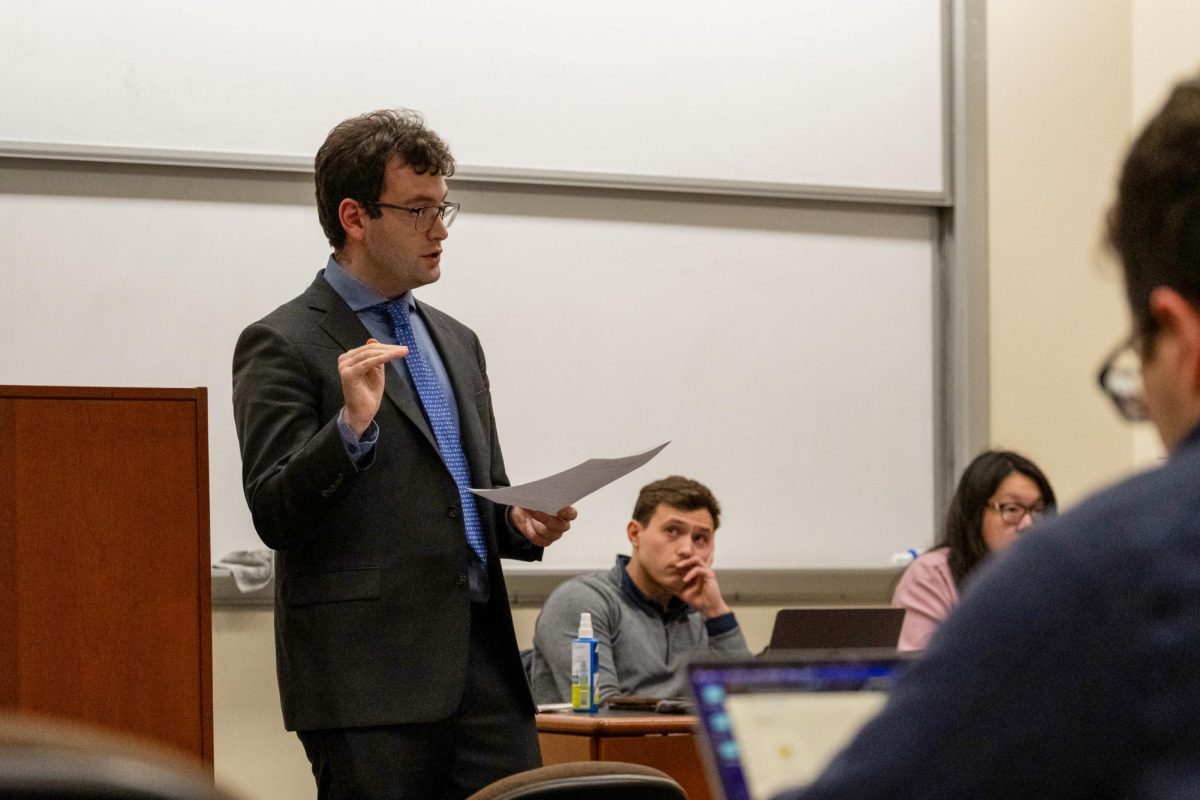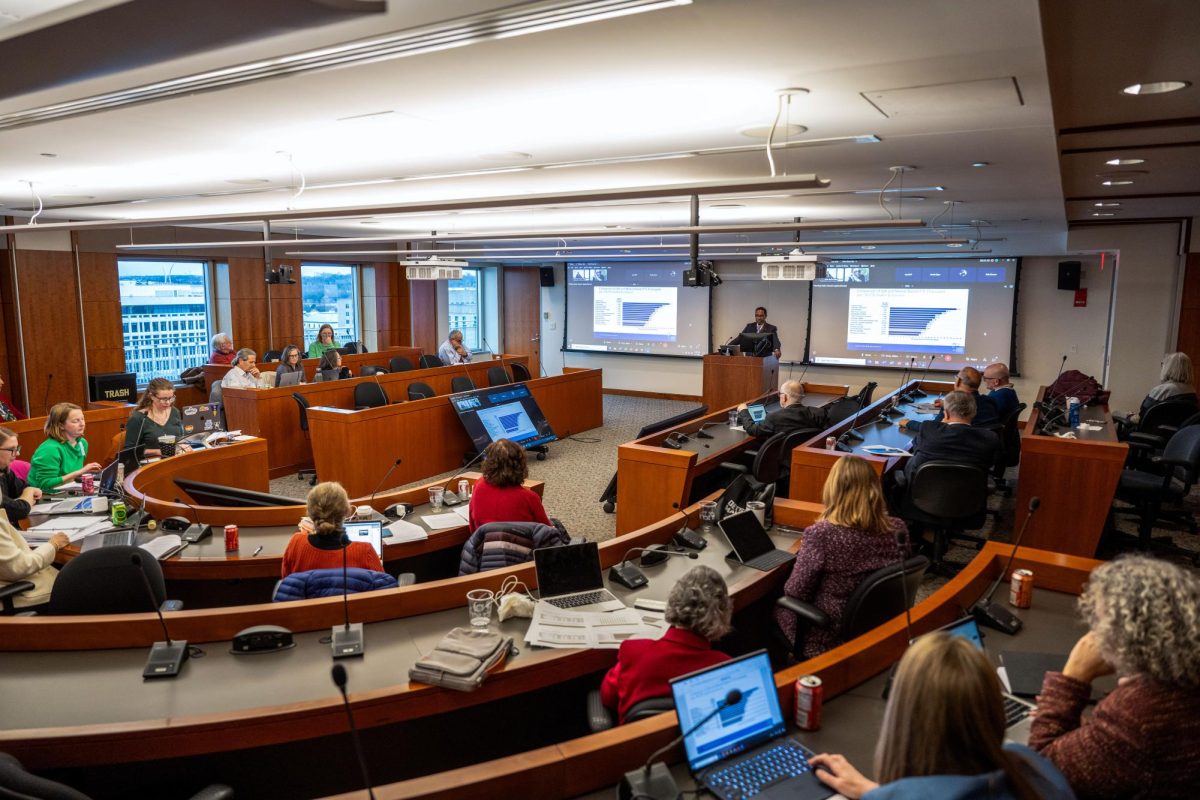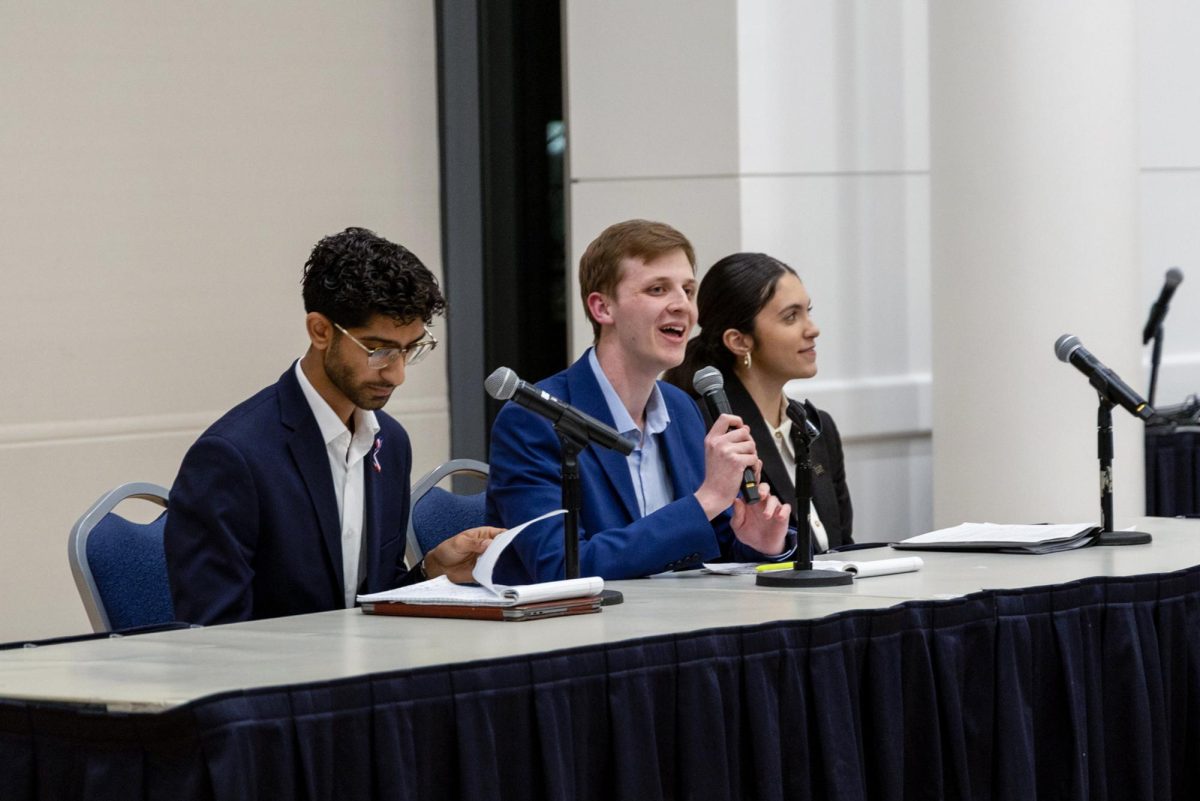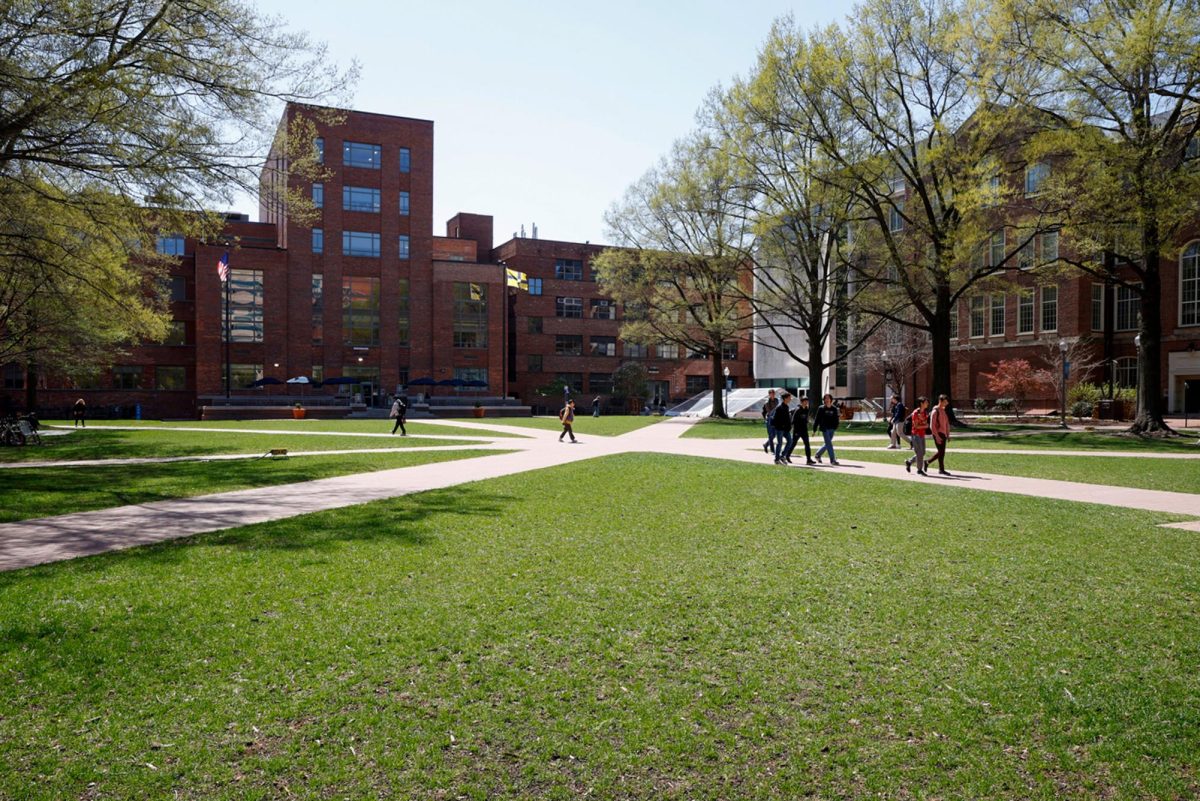A professor presented her book detailing her two years of research in Brazil studying how residents organize themselves to elect public officials who will confront their clean water scarcity at the Elliott School of International Affairs on Wednesday.
With 11 years of research on the topic under her belt, Alicia Cooperman, an assistant professor of international affairs and political science, compressed her work into an hourlong talk on the power of grassroots voting that organically develops in areas where clean water access is scant in Brazil. The event was cohosted by the Department of Political Science and the Institute for International Economic Policy in partnership with the Latin American and Caribbean Studies Initiative of the Elliott School.
Cooperman, whose research focuses on environmental and distributive politics, chose to investigate the question of how voters hold their politicians accountable because she wanted to combat how comparative politics literature about Latin American voters assumes that voters are not holding their government officials accountable and voting is done in a top-down, coercive way. She said she went into a rural area of northeastern Brazil to research whether the theory of clientelism, or votes cast in exchange for individualized gifts, stands true.
Cooperman said she read about similar misconceptions on voters who only vote the way they do due to coercion. She said she found that voters cast ballots as a block for the candidate that shows them with proof that they can deliver what the voters need, which proves the absence of coercion and that voters approach elections in a calculated way.
“When scholarship sees elites doing it, they go, ‘Ah, that’s strategic,’ but when they see regular voters do it, they say, ‘No, no, no, they must have been coerced,'” she said.
Cooperman said she came out with a “totally different story” than the current scholarship and she hopes that her book will give credit to voters who have agency over their local politicians and the power to hold them accountable. She said she found that civil society plays an “important role” as an intermediary between the residents living in the region through bloc voting — shared voting for the same candidate — and their politicians, who use the feedback to request environmental and other policy changes.
“This is an extremely sophisticated way of reshaping the institution surrounding them so that they can exert their political power through bloc voting,” she said.
Cooperman said her data results changed because of community organizing shutting down during the COVID-19 pandemic and former conservative Brazilian President Jair Bolsonaro slashing rural development programs that handed land redistribution rights to Indigenous families.
Cooperman said bloc voting she witnessed on the scene started out of necessity from a neighborhood complaint about water access and the collective benefit of ridding the problem. She said her initial intrigue unraveled from a northeastern Brazil resident’s Instagram post demanding answers from their city council members as to why tap water trickling into a bucket — and that they used every day — was brown.
“Where is the city councilor? Where is the mayor? Nobody looks at Canindé except for the moment of voting,’” Cooperman said as she read from a local users’ post.
Cooperman said she pushed back on the misconception published by scholars in Latin American politics that citizens are politically disengaged and not as strategic as “elites” with heightened resources through her fieldwork studying organized groups like community associations made up of residents that congregate. She found through visual data results from a hypothetical household survey combined with election results of the region that higher trust is associated with lower clientelism and a centralized polling station for the communities within the rural municipality of Canindé.
“The association is going to play a really important role in encouraging people to vote for certain candidates and really solidify around one candidate,” Cooperman said.
Cooperman said she found lower trust levels associated with higher clientelism. She was able to use evidence through trust level data, interviews and public discussion over social media to find that clientelism is not as attractive as collective rewards for voting strategies.
“If the candidate gave collective benefits, as opposed to an otherwise similar one who promised individual ones, it’s an increase of 1.5 on a scale of one to four,” Cooperman said.


